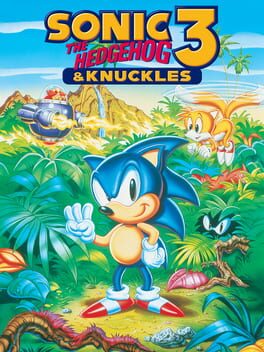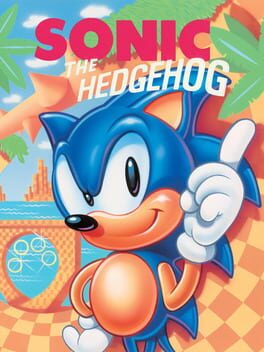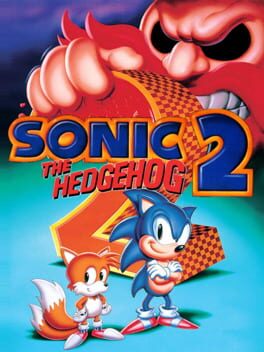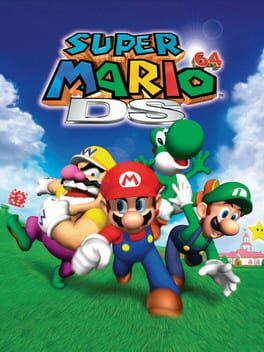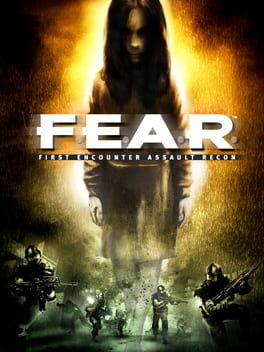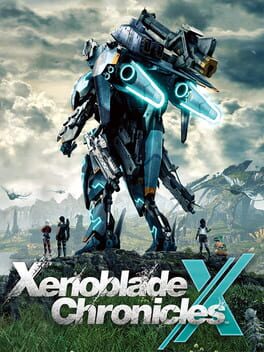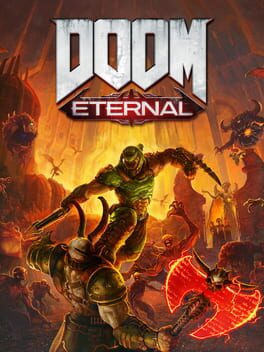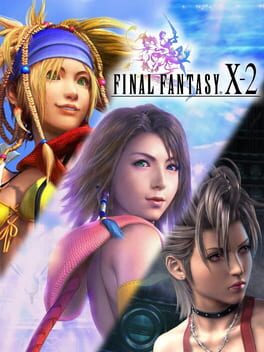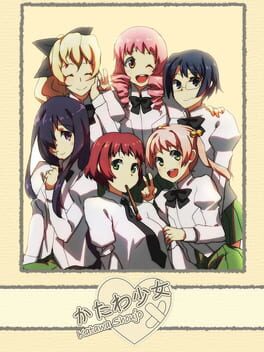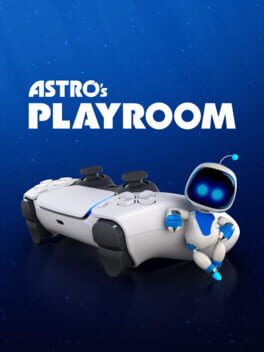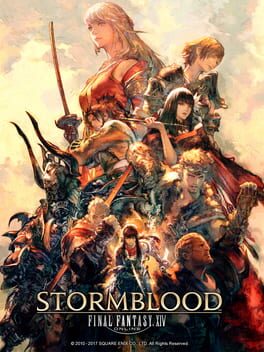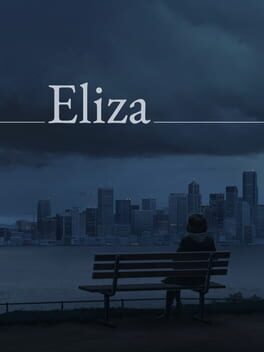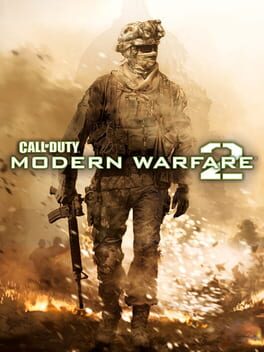straylight
I distinctly remember this being the first game I ever 100%'d as a kid which is like... remarkable because there's a LOT of content in this game. definitely a product of its era in that time where games were constantly upping the ante on the sheer amount of Things they were including in their games
Hyper Sonic is still the raddest shit ever
Hyper Sonic is still the raddest shit ever
1991
1992
2004
2005
2020
2003
2012
must things be "good?" is it not enough to have consumed it during a weirdly vulnerable and foundational time in one's youth and promptly have it set a precedent for what one seeks out in other works of fiction going forward?
i'm not sure if katawa shoujo is entirely worth reading in this day and age; it is in almost every way a product of its time and place. its popularity was most likely spurned by a bunch of young dudes from /v/ expecting a funny little game with crass humor and walking away from it having genuinely felt something from a piece of media from the first time. again, time and place — in today's era of brutal honesty about commitment to fiction and fandoms wearing their investment in their favorite stories proudly on their sleeves, it may seem quaint at best and downright questionable at worst. but back in 2012 when the abstract concept of "feels" was all a lot of people really had to describe what this game and many other period-piece jp media had done to them, it was something truly special.
in many ways, it still is — at least to me. rin was my first favorite-ever character and probably my first hint that i was autistic was how much i related to her route at the tender age of 14. it set a precedent going forward for my investment in character writing above all else in fiction, and i really can't imagine where i would be without it.
i'm not sure if katawa shoujo is entirely worth reading in this day and age; it is in almost every way a product of its time and place. its popularity was most likely spurned by a bunch of young dudes from /v/ expecting a funny little game with crass humor and walking away from it having genuinely felt something from a piece of media from the first time. again, time and place — in today's era of brutal honesty about commitment to fiction and fandoms wearing their investment in their favorite stories proudly on their sleeves, it may seem quaint at best and downright questionable at worst. but back in 2012 when the abstract concept of "feels" was all a lot of people really had to describe what this game and many other period-piece jp media had done to them, it was something truly special.
in many ways, it still is — at least to me. rin was my first favorite-ever character and probably my first hint that i was autistic was how much i related to her route at the tender age of 14. it set a precedent going forward for my investment in character writing above all else in fiction, and i really can't imagine where i would be without it.
One day I'll go back and finish this, but in the meantime: "complex" doesn't equal "good" and there's only so much sitting around waiting to get to the point that I can do before I begin to get frustrated and lose interest.
I don't like visual novels and I don't care for mystery stories, so it may just be that this game simply isn't for me – a shame, because I really like the idea of it. The visual style is great and I'm a huge fan of the RTS gameplay, much as I don't care for the exploration gameplay.
I don't like visual novels and I don't care for mystery stories, so it may just be that this game simply isn't for me – a shame, because I really like the idea of it. The visual style is great and I'm a huge fan of the RTS gameplay, much as I don't care for the exploration gameplay.
2020
2003
I could sit here and write out a long, nuanced review expositing why I hated almost every second of this expansion, but instead I will effortlessly and precisely explain the issues with Stormblood using but a single sentence: Lyse fucking sucks.
The decision to split this expansion evenly between two regions was a mistake and both sides suffered for it. While I love the Othard sections and the characters within (the Azim Steppe gets special mention here, being penned by the ever-winning Natsuko Ishikawa) in the end they felt a bit rushed and half-baked despite having taken up a solid half of the expansion – pacing is the name of the game, folks. It's an issue FFXIV has always had, though Heavensward was a great deal better about it for the most part. Ala Mhigo as a whole is just a mess of poor writing, insensitive at best and outright offensive at worst. I'm not going to get into it in any great degree of detail but again, Lyse is the corporeal embodiment of everything wrong with Stormblood. It's hilarious to me that they drop her like a bad habit the second the post-Stormblood patch content starts rolling out.
2.5 stars for the Othard sections, 0 stars for the Ala Mhigo section – but a consolation half-star on account of the dungeons and (most of the) trials being the best that FFXIV has had to offer up to this point. Seriously, they're incredibly fun and quite visually striking (not to mention full of love for Final Fantasy VI, one of my favorite Final Fantasy titles) in a way that I almost forgot about my issues with the story and non-party duties while playing through them.
Yotsuyu had girl power when she made that dude kill his own parents.
The decision to split this expansion evenly between two regions was a mistake and both sides suffered for it. While I love the Othard sections and the characters within (the Azim Steppe gets special mention here, being penned by the ever-winning Natsuko Ishikawa) in the end they felt a bit rushed and half-baked despite having taken up a solid half of the expansion – pacing is the name of the game, folks. It's an issue FFXIV has always had, though Heavensward was a great deal better about it for the most part. Ala Mhigo as a whole is just a mess of poor writing, insensitive at best and outright offensive at worst. I'm not going to get into it in any great degree of detail but again, Lyse is the corporeal embodiment of everything wrong with Stormblood. It's hilarious to me that they drop her like a bad habit the second the post-Stormblood patch content starts rolling out.
2.5 stars for the Othard sections, 0 stars for the Ala Mhigo section – but a consolation half-star on account of the dungeons and (most of the) trials being the best that FFXIV has had to offer up to this point. Seriously, they're incredibly fun and quite visually striking (not to mention full of love for Final Fantasy VI, one of my favorite Final Fantasy titles) in a way that I almost forgot about my issues with the story and non-party duties while playing through them.
Yotsuyu had girl power when she made that dude kill his own parents.
2019
Cyberpunk is my favorite genre of fiction and it means more to me than I can really say, as the philosophy and ideas at its core not only align with who I am as an individual but greatly shape and inform how I perceive the world around me and engage with it.
Having said this I think I'm more than qualified to say that most cyberpunk sucks, due in no small part to most works within its boundaries' stubborn insistence on remaining locked within the decades that cyberpunk was born out of rather than looking forward into the future or having something to say about the present day-and-age. I, too, love the nebulous concept of cyberspace and The Net and cybernetic augmentations and androids and hackers and shady corporate street samurais and all of that, but there also comes a point where a lot of cyberpunk creators seem more interested in creating genre fiction rather than the introspective, theory-driven text that defined the genre's literary roots to begin with.
With this in mind, you now have the proper context with which you can understand why I find Eliza so refreshing: it's the first time I've consumed a piece of cyberpunk media made within the last five-or-so years that actually feels confident enough in its ideas, storytelling and cohesion as a whole to stand on its own without relying on cliches, visual gimmicks or tired tropes. Instead, it does what ideally every narrative should: draw from the world around it and the cultural context under which the game was developed. Not only does the game's (very nuanced and very well-thought-out) writing reflect the reality that most millennials find themselves in (the gig economy, social media's invasive presence in our personal lives, startup culture and the burnout that inevitably follows, nearly every aspect of our lives being automated or controlled via a smartphone app), but the heart-and-soul of the game is so aggressively 2010s from head to toe that I feel as if ten or twenty years from now this will be considered a seminal cyberpunk period piece, much in the same way that Synners, The Terminator or Serial Experiments Lain are.
Every character is complex enough to feel fleshed out but humble and understated enough to feel believable, as are their relationships with the protagonist Evelyn (herself a masterfully-realized portrayal of getting back on one's feet after burning out of her life's work) and how they do or don't impact her depending on the choices the player's make. I'm not really much of a VN person, but I think that the way that Eliza manages to play with the typical VN formula of "choose dialogue options to influence the path you go down" into its story, themes and Evelyn's character is extremely compelling, especially because for the most part it relies more heavily on a lack of choice than it does branching paths or complete control over what happens in the story.
My only real complaint is that other characters feel sidelined if they're not in the ending that you choose to pick and that the ending itself feels as if it comes up a little suddenly and is forced by a prompt as opposed to a series of multiple decisions – but I also can't imagine the game going on for much longer and this decision makes it easy to go through and get all of the endings, so I can't complain. Some may argue that the political ideals at the core of this game lean too hard into centrism or sympathize with capitalists far too hard for it to be considered a true cyberpunk piece of media, but I personally never felt anything but revulsion towards either of the game's two millionaire characters and I think the game does a lovely job of portraying how difficult it can be to actually bring about meaningful change in society no matter how gifted, privileged or skilled you are.
An excellent experience and a must-read if you're a fan of cyberpunk, even if you normally don't mesh well with visual novels.
Having said this I think I'm more than qualified to say that most cyberpunk sucks, due in no small part to most works within its boundaries' stubborn insistence on remaining locked within the decades that cyberpunk was born out of rather than looking forward into the future or having something to say about the present day-and-age. I, too, love the nebulous concept of cyberspace and The Net and cybernetic augmentations and androids and hackers and shady corporate street samurais and all of that, but there also comes a point where a lot of cyberpunk creators seem more interested in creating genre fiction rather than the introspective, theory-driven text that defined the genre's literary roots to begin with.
With this in mind, you now have the proper context with which you can understand why I find Eliza so refreshing: it's the first time I've consumed a piece of cyberpunk media made within the last five-or-so years that actually feels confident enough in its ideas, storytelling and cohesion as a whole to stand on its own without relying on cliches, visual gimmicks or tired tropes. Instead, it does what ideally every narrative should: draw from the world around it and the cultural context under which the game was developed. Not only does the game's (very nuanced and very well-thought-out) writing reflect the reality that most millennials find themselves in (the gig economy, social media's invasive presence in our personal lives, startup culture and the burnout that inevitably follows, nearly every aspect of our lives being automated or controlled via a smartphone app), but the heart-and-soul of the game is so aggressively 2010s from head to toe that I feel as if ten or twenty years from now this will be considered a seminal cyberpunk period piece, much in the same way that Synners, The Terminator or Serial Experiments Lain are.
Every character is complex enough to feel fleshed out but humble and understated enough to feel believable, as are their relationships with the protagonist Evelyn (herself a masterfully-realized portrayal of getting back on one's feet after burning out of her life's work) and how they do or don't impact her depending on the choices the player's make. I'm not really much of a VN person, but I think that the way that Eliza manages to play with the typical VN formula of "choose dialogue options to influence the path you go down" into its story, themes and Evelyn's character is extremely compelling, especially because for the most part it relies more heavily on a lack of choice than it does branching paths or complete control over what happens in the story.
My only real complaint is that other characters feel sidelined if they're not in the ending that you choose to pick and that the ending itself feels as if it comes up a little suddenly and is forced by a prompt as opposed to a series of multiple decisions – but I also can't imagine the game going on for much longer and this decision makes it easy to go through and get all of the endings, so I can't complain. Some may argue that the political ideals at the core of this game lean too hard into centrism or sympathize with capitalists far too hard for it to be considered a true cyberpunk piece of media, but I personally never felt anything but revulsion towards either of the game's two millionaire characters and I think the game does a lovely job of portraying how difficult it can be to actually bring about meaningful change in society no matter how gifted, privileged or skilled you are.
An excellent experience and a must-read if you're a fan of cyberpunk, even if you normally don't mesh well with visual novels.
on one hand this game was basically the blueprint for the Military Shooter genre that existed for the sole purpose of indoctrinating impressionable young dudes into a nationalist mindset fit for armed forces enlistment but like, on the other hand, dude have you ever played search and destroy on underpass
